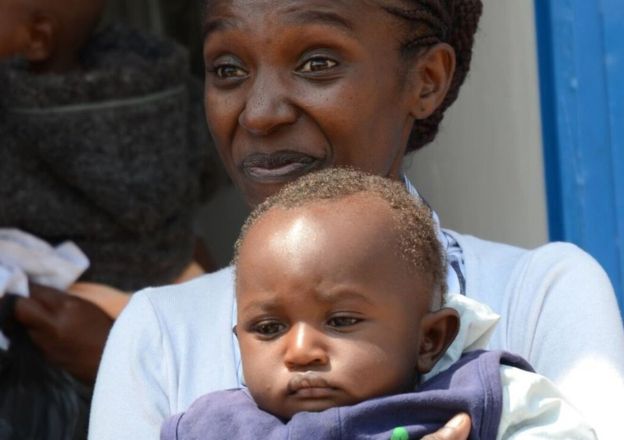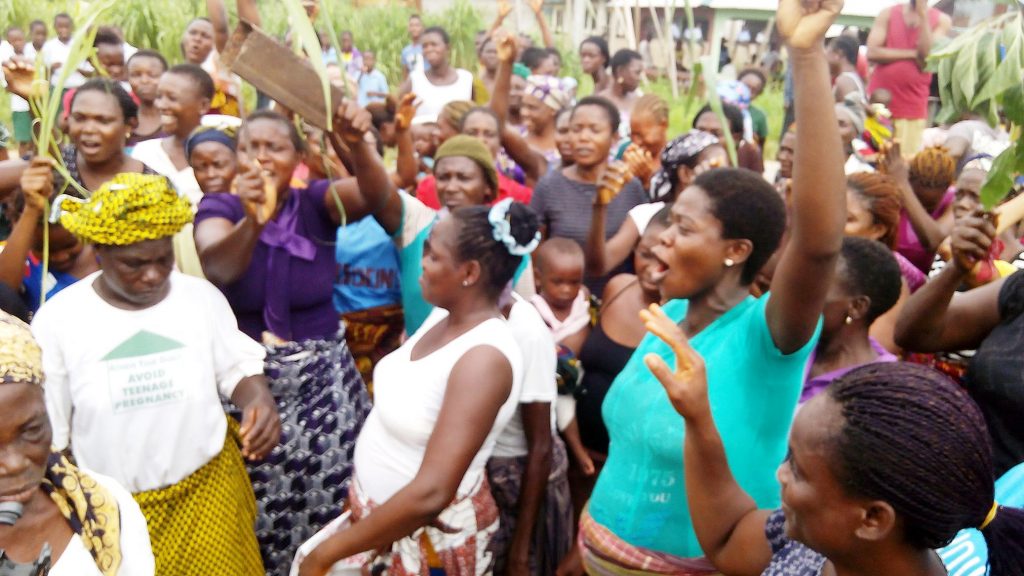There is so much we can do as individuals to effect a positive change in the lives of women and girl children, says Sarah Nyengerai.
International Women’s Day (IWD) is a day set aside to honour the social, economic, cultural and political achievements of women. The theme for 2018, #PressforProgress, is a strong call to motivate and unite communities to think, act and be gender inclusive.
Celebrated annually on 8 March, IWD is an annual reminder that gives women, and others, the opportunity to renew their lifetime commitment to the advancement of women and girl children.
To honour this special day, many of us witnessed or participated in celebratory events and listened to or read an inspiring speech or two. And let us not forget the memes and hashtags strewn across various social media platforms.
Now that it has all been said and done for this year, and all the Instagram, Facebook and Twitter posts have been awarded millions of ‘likes’ and ‘shares’, I cannot help but retain an elated ‘this is our time’ feeling as I reflect on the various female warriors who are breaking new ground the world over.

While countless names will never make it into the limelight, it is difficult not to notice and be influenced by the strong women around us and the infectious spirit of ‘the time is now’ and ‘we can do it’.
There is enough evidence to support the fact that there is more to IWD than just another day of celebration. Be it on a local, national, regional or international level, women the world over, regardless of race, class, ethnicity, religion or belief, marital status, age, etc. are breaking new ground and forging ahead in business, politics, economics, science and medicine, art, music, media and film, fashion, mining, agriculture, sport, construction – the list is endless.
There is no greater time than now to take charge of our destinies and empower others. We not only owe it to ourselves but to the women who have paved the way for us and to the women and girl children who will follow. To quote the activist Obiageli Ezekwesili, “Empowered women will do anything to remove the barriers that block those who are coming up behind.”
NewAfricanWoman defines an empowered woman as one with access to education, training and developed capacities to enter the labour market. She is equipped with the necessary skills to have access to greater opportunities and resources, benefitting both family and society.
To empower someone means to make them stronger and more confident, specifically when it comes to controlling their life and claiming their rights. To be empowered is to know one’s strengths and to embrace them. It is important to start this at an early age, especially for girls.
The life-changing impact that support and affirmation can have on a woman or a girl child is depicted exceptionally well by Zimbabwean actress and award-winning playwright Danai Gurira, in her acceptance speech at the Essence Black Women in Hollywood Awards. In her inspiring and emotive speech – Danai Gurira’s Speech Essence Awards – she demystifies negative stereotypes about women and tasks each of us to intentionally affirm young girls so as to raise a generation of warriors that support and fight for one another.
Gurira’s profound speech and life are evidence to these two facts: Firstly, behind every successful woman is a tribe of other successful women who have her back. Secondly, when women support one another, incredible things happen.
Support at national level
On a macro level, it is important for women to be empowered through a change in policies and legal reforms. Consider, for example, that of the 10 countries with the highest rates of child marriage, nine are in Africa. If this trend continues, the United Nations Commission on Human Rights predicts that by 2050 half of the world’s child brides will be African.
Protestors in Nigeria demand action on behalf of the more than 200 girls kidnapped from a government by Islamic militants who have said they should not have been in school and who now threaten to sell them into slavery. Photo: Facebook/Bring Back Our Girls
Other areas that require attention to advance the empowerment of women include the representation of women in politics, the eradication of laws that discriminate against women, sexual and gender-based violence (not all African countries have legal protection for women against domestic violence), women living with albinism and female genital mutilation, to name a few.
The participation of women in the various economic sectors is vital in order to address social and cultural issues, build stronger economies, achieve developmental and sustainability goals and ultimately improve the quality of life for women, families and society at large.
A concerted effort to include women is of paramount importance. As Hillary Clinton said, “Women are agents of change, drivers of progress and peacemakers who simply need a fighting chance.”
One of the ways in which women are given a fighting chance is through platforms that result in the creation of guides such as the United Nations Women’s Empowerment Principles. The seven empowerment principles offer practical guidance to business and the private sector on how to empower women in the workplace, marketplace and community at large.
Although our spheres of influence differ, I believe in starting right where we are in our efforts to bring about social and cultural change. There is so much we can do as individuals to effect a positive change in the lives of women and girl children.
We all remember that one woman who took the time to affirm or encourage us in our formative years. Empowering women starts in our families, workplaces, clubs, social circles and communities. In our families, for example, we can challenge the status quo and deconstruct stereotypes that negatively affect girls and boys from an early age and intentionally expose the girl child to a variety of opportunities in education.
A primary school girl writes on a board at the Eastview School in Caledonia, Harare, Zimbabwe, 14 March 2016. Photo: ANP/EPA/Aaron Ufumeli
Other measures include providing support or donating to worthy causes or charities that support women, volunteering to teach or mentor young girls or simply showing and telling the women in our lives that we care. Through our individual and combined efforts we not only become stronger women but we create women’s movements with staying power.
As we “press for progress” in our personal lives, that very progress may serve to empower other women to do the same. Simply start by using your talents, passions or gifts to not only better yourself but the lives of others too. We all have resources and experiences that we can share.
This is our time and the time is now. The only question is this: How will you #PressforChange in 2018 and beyond?

